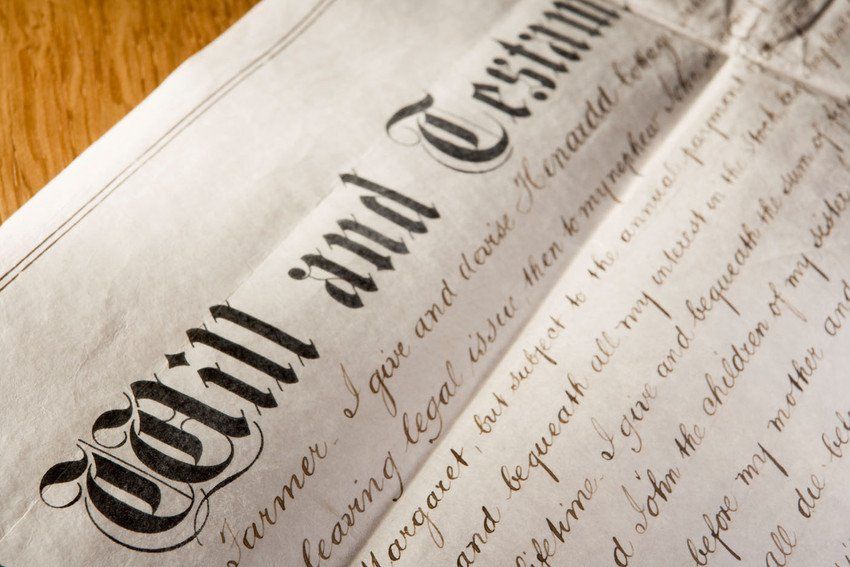Using A Wills And Probate Solicitor: What You Need To Know

Probate - perhaps a legal term you have heard but are possibly not totally familiar with.
Essentially, it is the word often used to describe the legal and financial processes which are involved in dealing with the property, money and possessions (frequently referred to as assets) of a person who has passed away. A probate solicitor assists people who have lost family members or friends, which is undoubtedly a highly stressful and emotional time for those left behind. As well as this, they will also be tackling the various types of taxation that need to be dealt with when a person dies, this may include income tax, capital gains as well as inheritance tax.
In some scenarios, it's very much acceptable to deal with the probate yourself, while you may also be the executioner of the will. Moreover, a common course of action for lots of people is to use the assistance of a wills and probate solicitor throughout the process as a whole. Of course, dealing with the loss of a loved one can be an emotionally charged time for you and perhaps your family, so hiring a probate solicitor can offer you some much needed clarity during what is undoubtedly a difficult time.
Due to the intricate nature of this type of legal process, as well as the sheer amount of legal jargon, lots of people find understanding the procedure of wills and probate, a little tricky. A probate solicitor will not just deal with the legalities and administrative process, they can also help with the additional benefit to you of being a totally independent body with no emotional ties to the individual or the case itself. They are working with cases of this nature every single day. They will be able to deal with the legalities with an unbiased perspective - which is something that is required in this line of work.
This guide will walk you through what a wills and probate solicitor does and what you need to know. This includes the various types of will, using a solicitor and the process of using a conveyancer.
Probate is basically the process of administering a deceased person's estate. This could involve coordinating the organisation of their money and possessions and then distributing them as a form inheritance. What's more, you may be shocked to know that the number of adults in the UK who don’t have a will is at its highest rate amounting to over 31 million. In research carried out by unbiased.co.uk, the amount of people passing away without a will was at its highest in 2018 - the greatest peak since the last highest rise in 2011. Dying without a will in place is referred to as ‘intestate’. When this happens, inheritance law is implemented to figure out who is entitled to what. This is known as the Rules of Intestacy. If the deceased person has left a will, it will specify who they have chosen to leave the estate to, this individual is then known as the executor of the will.
What is considered a grant of probate?
Before an executioner starts this legal process, they need to apply for a grant of probate. This legal document provides them with permission to tackle the deceased’s legal property. Probate will stop once all taxes and debts have been paid off and their inheritance has been passed forward. If you have been named as the executor and don’t want to apply for probate yourself, you can request that a solicitor do this on behalf of you.
What scenarios will require wills and probate solicitors?
Other than the simple administrative and impartial guidance that comes with hiring a wills and probate solicitor, there are a few other issues that may require the support and guidance of one. This includes:
●A will being contested in terms of its validity and or if dependants were left out of the will (and they are likely to contest this)
●The deceased person has passed without a will
●The case involves a large estate and complex details are involved such as trust funds
●The estate in question is bankrupt
●The estate involves a foreign property or asset
●The value of the estate is receiving consistent income
●The overall value of the estate is on the boundary of an inheritance tax threshold
Every will and estate will very much vary, the precise probate process is reliant on the instructions left on the will as well as the assets, creditors, and the benefactor of the estate itself. This process involving the executor will go something like this:
●Gather the relevant information related to the estates assets
●Apply for the grant of probate
●Fill out an inheritance tax return and pay any due tax
●You receive a grant of probate
●Repay any outstanding debts left by the deceased
●Distribute the rest of the estate in accordance with what is stated in the will
A probate and will solicitor will also assist with any disputes that occur between the executor, benefactors or HMRC.
Wills must reach a specific criteria in order to be valid. The person who creates the will, known as the testator, must be eighteen years of age or older and of sound mind. The testator is then needed to select an executor, which will give them the responsibility of distributing the property after death. They need to sign and date this will - this has to be done in the presence of witnesses. Moreover, within this process, there are a number of different types of will. Realising what type of will is suited or applicable to you can be tricky, this is why it is recommended that you use a professional solicitor. In broad terms, there are a few types of will available to you:
A single will - this type of will is often the most frequently used and best-known type of will. This will detail the demands of the individual, including their chosen executor as well as any gifted items being passed on.
A mirror will - used when there is a possibility that you may outlive the person who has created the will.
A trust will - there are a few different types of trust wills. A property trust will is put in place
to help you understand how a property you may own is taken care of.
A living will - this kind of will permits you to express your wishes while fully aware of your decisions in the event that in the future you are unable to make these decisions. This isn't a legal binding contract but is taken into full consideration by doctors and solicitors.
PJE Solicitors - Wills, Trust and Probate
For many of us, drafting a will is hardly at the top of our to-do list. But the fact remains that the process of drafting your will, gives you the clarity and reassurance that your estate is going to be appropriately and fairly dealt with when you are no longer here, putting you and your loved ones at ease. Thinking about one’s death can be very challenging. We know that this can be difficult to plan for, which is why our experienced team go above and beyond to make the process as stress-free and easy as possible for our clients. When you are ready to plan for the future, give us a call. Our team will ensure that your assets are distributed the way that you want and that your family knows your wishes. To find out more, contact us today, we’d be delighted to hear from you.










